
The project known as the “Great Sea Interconnector” to link the electrical power grids of Israel, Crete, and Cyprus via the largest submarine power cable in the world (310 km) is hanging in the balance, as talks between the parties involved in the work are at an impasse following the Cyprus Energy Regulatory Authority (CERA) disputes with NEXAN – the French-based cable and optical fiber company that has undertaken the project – and Greece’s Independent Power Transmission Operator (IPTO).
Reports indicate that talks between the parties reached a dead end on Friday, with the Cypriot side failing to respond to French pressure to resolve outstanding issues (cost recovery, geopolitical risks).
The same reports suggest that pending costs for the investment in the “Great Sea Interconnector” could be secured retroactively from a state source for the period between 2025-2030. The goal is to raise €100 to €120 million—funds that IPTO claims are necessary to avoid incurring losses if it does not collect fees from Cypriot consumers from the first phase of the project.
Meanwhile, the Cypriot side is not budging on the geopolitical risks involved, a matter IPTO has firmly brought to the fore following the recent Turkish provocations near the island of Kasos located in the southernmost region of the Dodecanese group during seabed exploration by Nexans.
Cyprus insists on retaining the term “may” from the previous regulatory decision of CERA to ensure provisions are in place for the implementing body in case obstacles arise that prevent the project from being completed.
On its part, French company Nexans which has entered into a contract with Greece’s Independent Power Transmission Operator to construct the electrical cable for a total of €1.4 billion, had communicated since early summer that the deadline for the contract’s implementation was August 31st, by which date, IPTO was obligated to pay the French company 15% of the project’s total value, or €216 million. However, according to reports, IPTO made one payment at the beginning of the year and another in early June, but no further payments have been made since then, as the standoff with CERA began.
Nexans is reportedly feeling the pressure from these developments, as the contract with the Great Sea Interconnection is one of the largest, if not the largest, in its portfolio. The project spans 1,208 kilometers, of which nearly 900 km involve the Cyprus-Greece connection. Cyprus had initially committed to contributing €100 million to the project from the Recovery Fund but has since withdrawn, requesting a new cost-benefit analysis (CBA) to be evaluated by the European Investment Bank (EIB) and an independent firm.
Source: tovima.com
Latest News

Unemployment Rate in Greece Down 8.9% in January: IOBE
The unemployment rate in Greece recorded a further decline in January 2025, reaching 8.9%, according to the latest Foundation for Economic & Industrial Research (IOBE) report.

Demand for Short Term Rentals in Greece Surges Ahead of Easter
Among the most popular Easter destinations from Good Friday to Easter Monday are Corfu, Hydra, the Peloponnese, Ioannina, Patmos, Loutra Edipsou, Kavala, Thassos, and Pelion
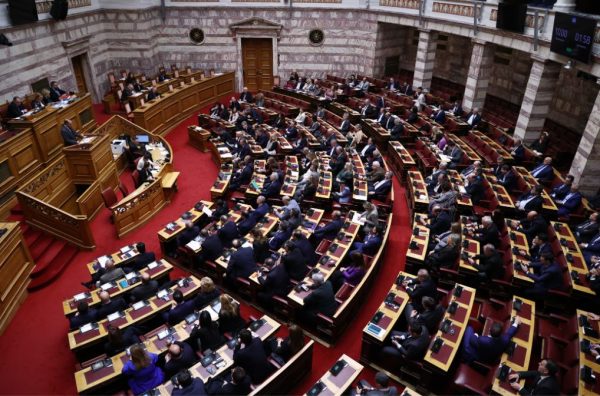
Opposition Reacts Strongly to Greek Government Reshuffle
PASOK's spokesperson, Kostas Tsoukalas, characterized the reshuffle as a clear indication of Mitsotakis' "strategic deadlock."

Greece’s Economy Awaits Moody’s Verdict on Investment-Grade Rating
The stock market has reflected strong performance, with the general index showing resilience and a lack of inward-looking caution.
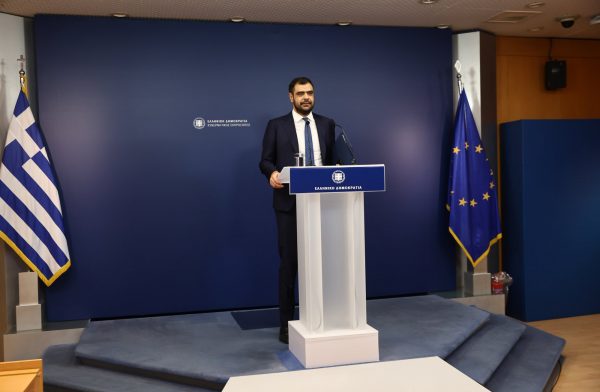
Greek PM Reshuffles Cabinet after No-Confidence Vote
The most notable changes in the Greek cabinet reshuffle include Kostis Hatzidakis being appointed Deputy Prime Minister and Kyriakos Pierrakakis taking over as Minister of National Economy and Finance.
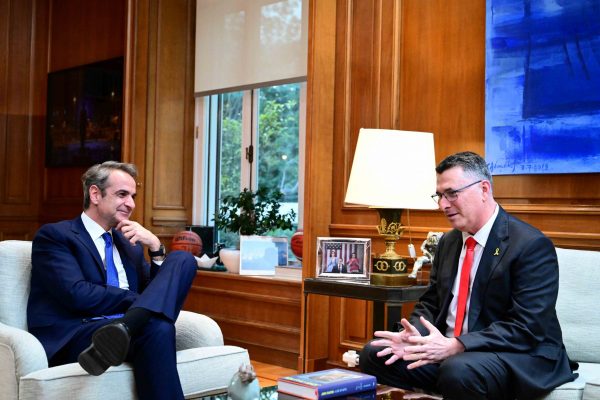
Mitsotakis: Greece-Israel Strategic Ties Increase Stability in East Med
Greek Prime Minister Kyriakos Mitsotakis made the statement in welcoming Israeli Foreign Minister Gideon Sa'ar to his office on Thursday

Conference Tourism in Greece Targets €6-7BLN
Currently, the Greek conference tourism generates €2 billion in revenue, ranking 47th globally in terms of total turnover in the international conference industry

Greece 2nd Last in Employment Prospects in EU: ManpowerGroup Report
Contrary to the global average, Greece’s employment prospects are strongest in the consumer goods and services sector

Greece Returns to Markets Reopening 15- and 30-Year Bonds
Pricing of the new bonds is expected to be finalized today, March 13, with settlement anticipated on March 20

Research in Greece : Wasted Talent, Missed Opportunities
The symposium made one thing clear: Greece possesses the intellectual capital to compete globally, but without decisive policy reforms, its research potential will continue to be squandered.













![Airbnb: Ποιοι ελληνικοί προορισμοί θα γεμίσουν το Πάσχα [γράφημα]](https://www.ot.gr/wp-content/uploads/2024/08/Airbnb-to-vima-90x90.jpg)
![Ξενοδοχεία: Άλμα 40% στις αξίες την τελευταία τετραετία – Πανευρωπαϊκή πρωτιά [γραφήματα]](https://www.ot.gr/wp-content/uploads/2023/10/ksenodoxio-90x90.jpg)














![Χρυσός: Ο Τραμπ εκτοξεύει την τιμή – Ουρές στο θησαυροφυλάκιο του Λονδίνου [γράφημα]](https://www.ot.gr/wp-content/uploads/2025/03/gold-scaled-1-600x420.jpg)

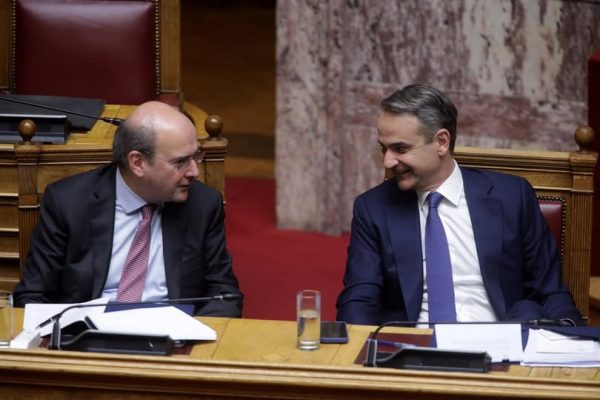

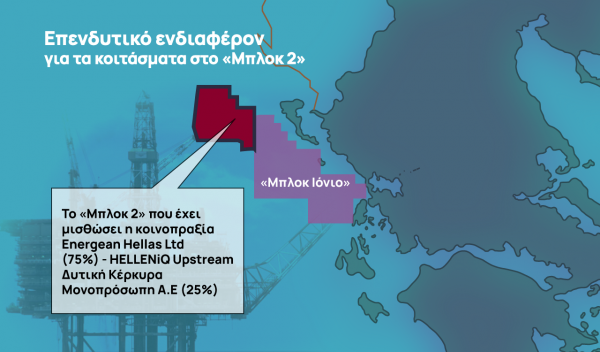

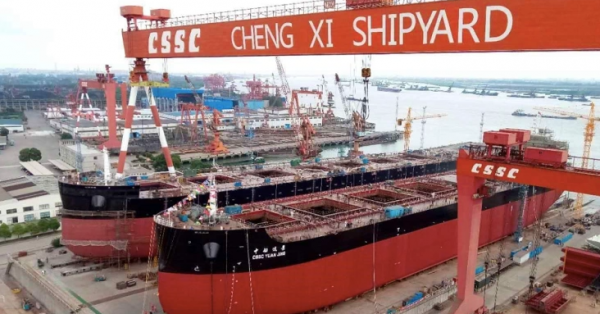
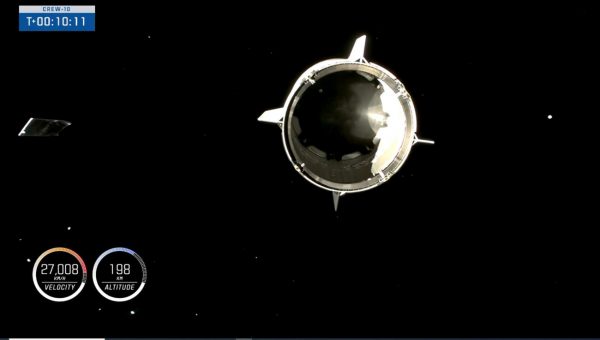


![Airbnb: Ποιοι ελληνικοί προορισμοί θα γεμίσουν το Πάσχα [γράφημα]](https://www.ot.gr/wp-content/uploads/2024/08/Airbnb-to-vima-600x399.jpg)

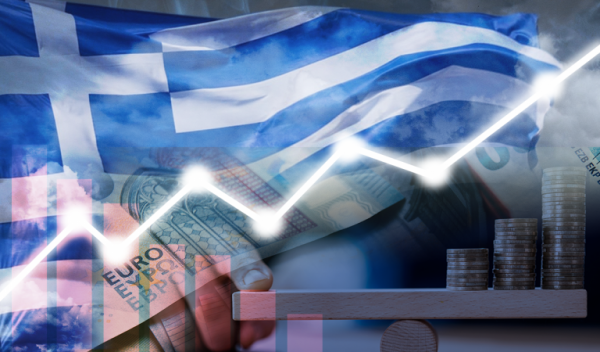
 Αριθμός Πιστοποίησης Μ.Η.Τ.232433
Αριθμός Πιστοποίησης Μ.Η.Τ.232433